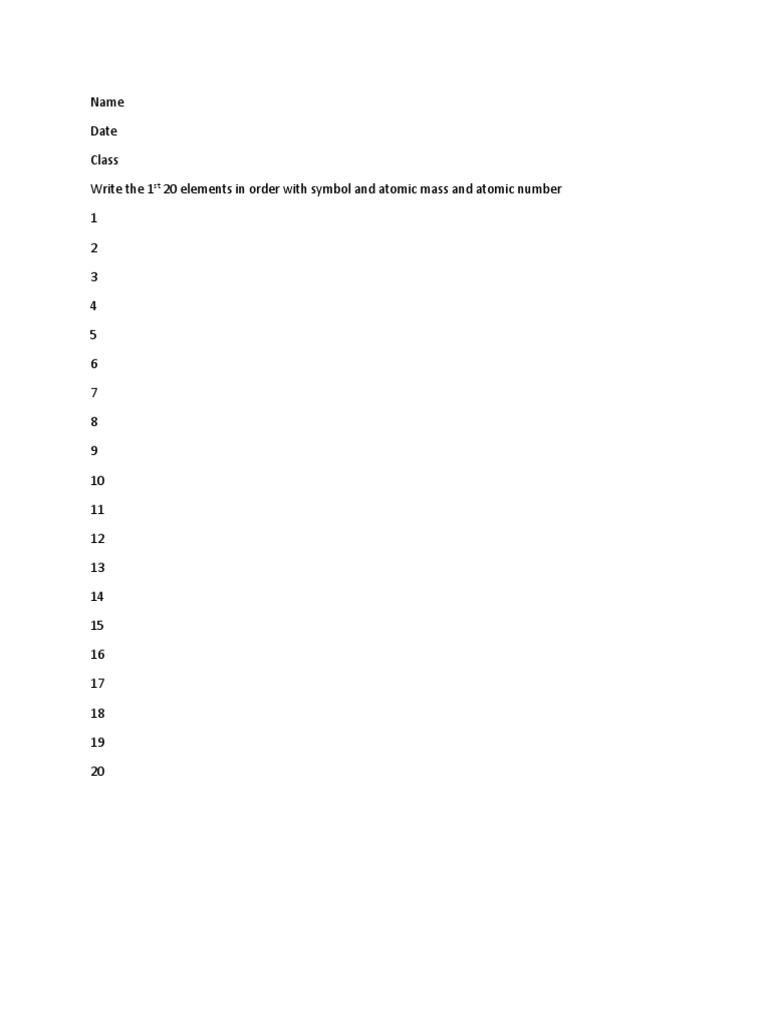Forming Ions Worksheet There are two X ions to balance out the negative 2 charge of S Step 2 Criss cross to balance charges Step l Write each ion and each charge Positive first Here s what ou et Add parentheses balance charges Step 2 Cliss cross to Here s what you get Must add paren eses FINAL ANSWE Step l Write each ion and
Forming and Naming Ionic Compounds Practice Worksheet name Type 1 List the charges the following elements would have as ions For each combination of ions fill in the chart below cation symbol anion symbol cations needed anions needed formula compound name calcium nitrite barium sulfate Ions How are ions made from neutral atoms Why You have learned that not all atoms of an element are the same Variation in the number of neutrons In general do metals form anions cation c these guidelines Extension Questions 12 Name the family of elements that make anions as shown in Model 2 13 Name the family of
Forming Ions Worksheet
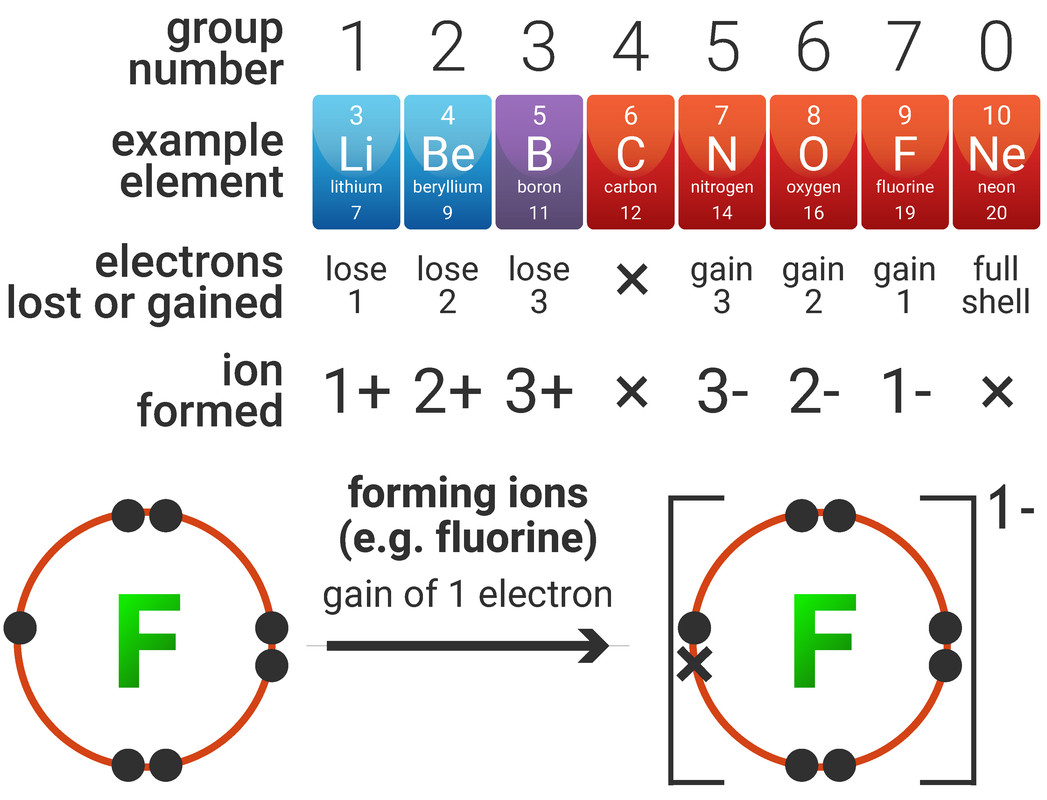
Forming Ions Worksheet
https://i.postimg.cc/g257QhQP/7-Forming-Ions-UHRes-wback.jpg
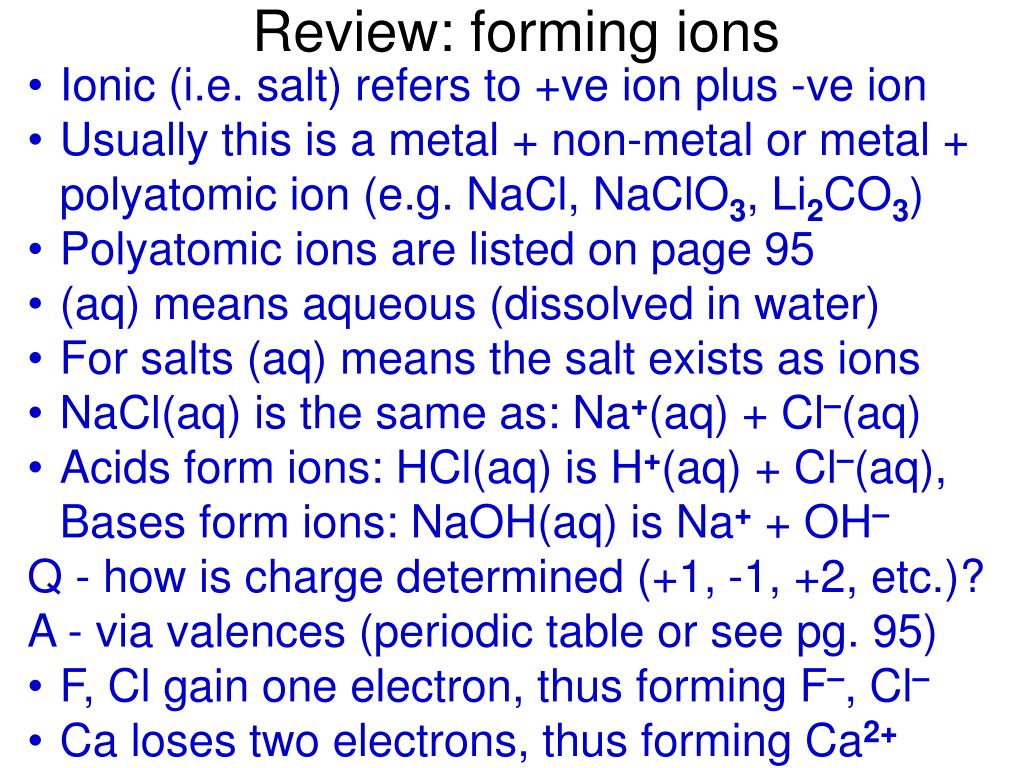
PPT Net Ionic Equations PowerPoint Presentation Free Download ID 59746
https://image.slideserve.com/59746/review-forming-ions-l.jpg
Drawing Ions Worksheet PDF
https://imgv2-1-f.scribdassets.com/img/document/504013281/original/988448cd3e/1685646984?v=1
The low temperature form room temperature of Cu 2 HgI 4 is a bright red The high temperature form 55 C is a dark brown solid This form is an ionic conductor which means that charge is carried by the new movement of ions The Cu 1 and Hg 2 cations diffuse throughout the solid by hopping from tetrahedral site to tetrahedral site File previews docx 20 55 KB docx 20 63 KB For KS4 Chemistry Initial introduction to the formation of positively and negatively charged ions
Forming negative ions The outer shells of non metal atoms gain electrons when they form ions the ions formed are negative because they have more electrons than protons the ions have the This is a bundle of six printable worksheets that teach students about ionic compounds and how they form These worksheets follow a natural progression first teaching students how ions form from atoms and why the common ions have the charges they do This worksheet introduces the octet rule as a b 6 Products
More picture related to Forming Ions Worksheet

Polyatomic Ions Worksheet Sample Free Download
https://www.formsbirds.com/formimg/polyatomic-ions-chart/6828/polyatomic-ions-worksheet-sample-l1.png

Ions Diagram Quizlet
https://o.quizlet.com/K1c1MbnFn0LvMLGdTswl5Q_b.jpg

Polyatomic Ions Worksheet Sample Free Download
https://www.formsbirds.com/formhtml/a48b0ecbc6a9c3da67eb/polyatfd29a1a8330b37f8a528/bg1.png
5 Describe two methods of recovering the sugar in solid form from the solution 1 2 6 A solution is made by dissolving 1 0 g of potassium dihydrogen phosphate in 1 0 L of water Assume that the volume of the resulting solution is 1 0 L and that the density of water and the resulting solution is 1 0 g mL This forming ions resource is a great way to secure students understanding of ions in preparation for learning about ionic bonding The resource includes several different worksheets a differentiated worksheet to support learners and answer sheets This resource includes Information sheet Forming ions Worksheet Charges of ions
Forming negative ions The outer shell of non metal atoms gains electrons when they form ions the ions formed are negative because they have more electrons than protons the ions formed have Pdf 286 79 KB A revision homework or class worksheet with answers that covers Formation of Ions in C2 GCSE Chemistry Including a variety of questions filling in gaps and drawing electronic structures Get 20 off this resource with the discount code EXTRA20 Formation of Ions Home Learning Worksheet GCSE
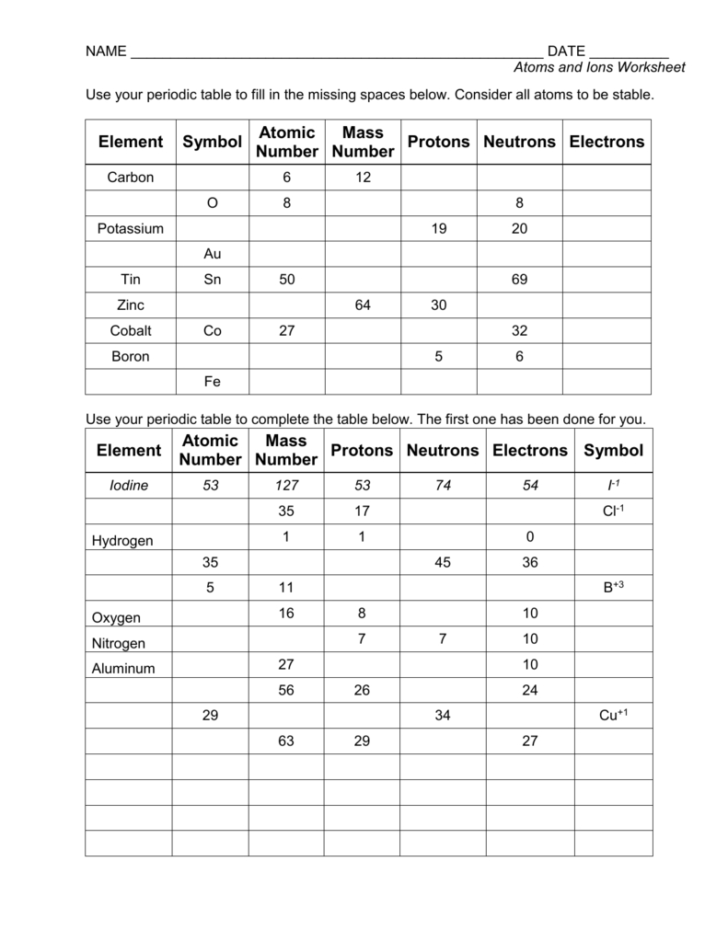
Suffix Ion Worksheet
https://db-excel.com/wp-content/uploads/2019/09/atoms-and-ions-worksheet-2-728x942.png
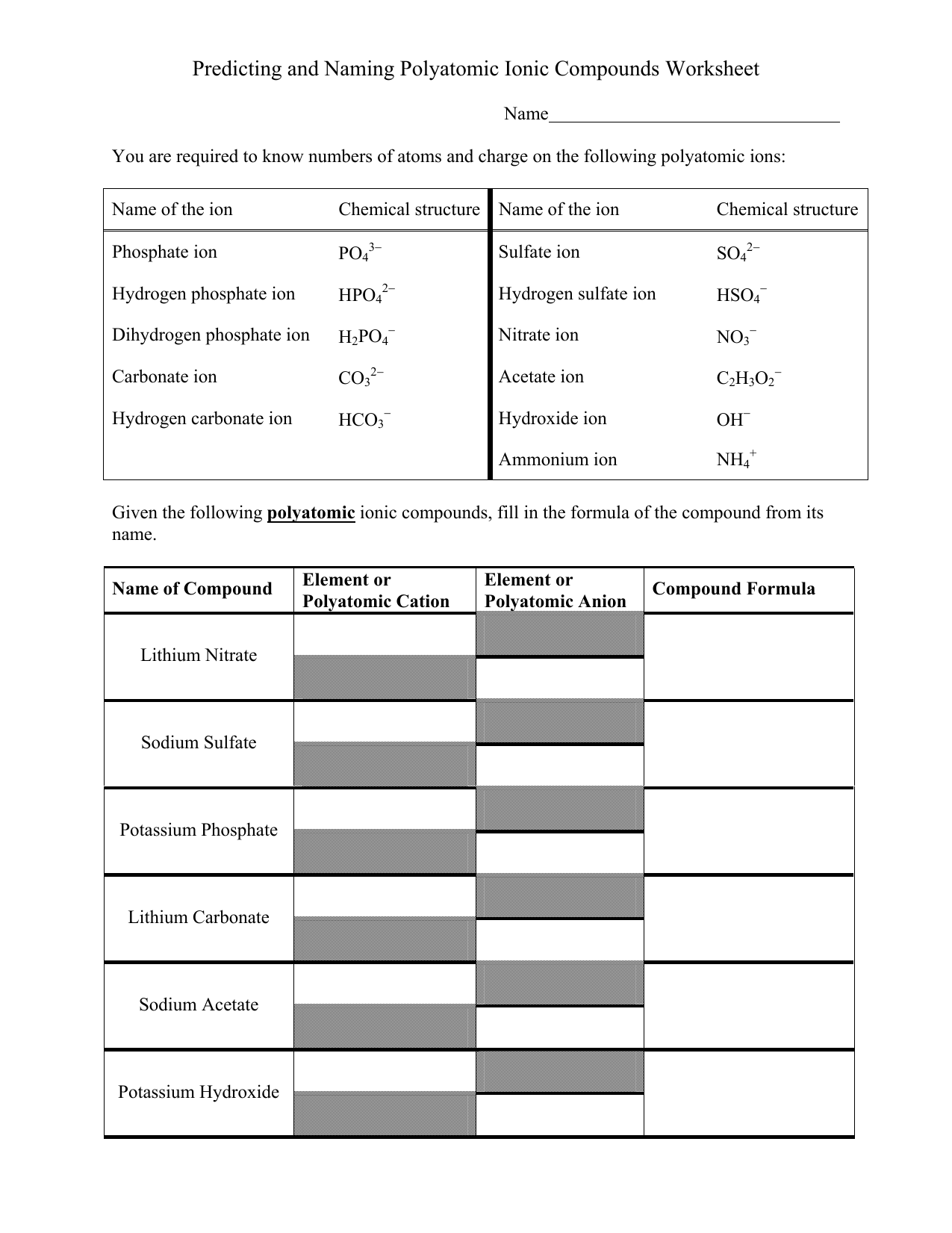
Polyatomic Ions Worksheet
https://s3.studylib.net/store/data/025296072_1-82493ebd1eac95ff96fed49fc619f7b4.png
Forming Ions Worksheet - This worksheet is included in the Year 9 Chemistry Workbook Australian Curriculum which contains the following worksheets Atomic Structure Atoms in Elements and Compounds Structure of Atoms Atomic Number Mass Number and Isotopes Electron Configuration Elements 1 20 Radioactivity Ions and Ionic Compounds
